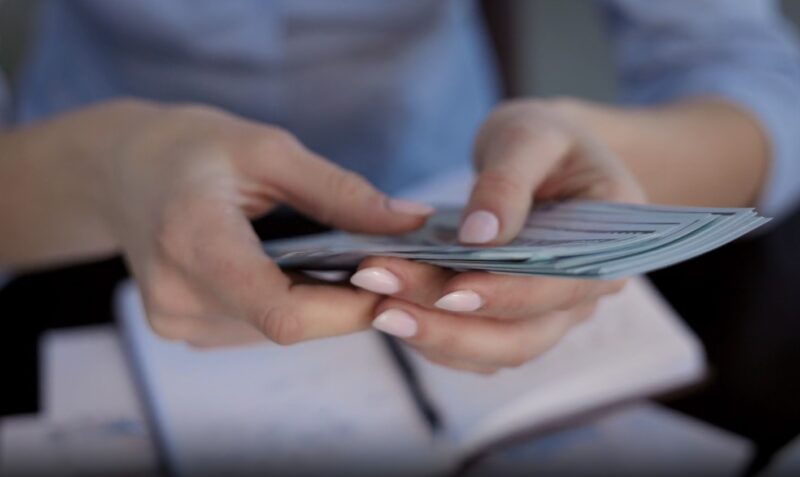Road trips are a fantastic way to explore and create lasting memories. However, they can also be a significant drain on your finances if not managed properly.
Luckily, there are ways to ensure financial stability and still secure a perfect vacation for you and your family. You can achieve that with some of the tips that we will share in the following sections.
1. Plan Your Route Efficiently

A well-planned route is the cornerstone of a cost-effective road trip. It’s not just about choosing the most scenic or shortest path; efficient route planning involves a strategic approach to reduce fuel consumption, avoid tolls, and maximize your time.
Optimize for Fuel Efficiency and Time
Mapping out your journey in advance allows you to identify the most fuel-efficient routes. Use online mapping tools like Google Maps or Waze to calculate the shortest or fastest path to your destination. Google Maps are especially important for off-road and cross-country road trips.
These tools also provide real-time traffic updates, helping you avoid congested areas that can increase fuel consumption. Additionally, consider driving at a steady pace, as constant speeding up and slowing down can also lead to higher fuel use.
Avoid Toll Roads and Highways
Toll roads can add a significant expense to your road trip. While they often offer a quicker route, avoiding them can save you money, especially on long trips. Plan your route through toll-free roads, even if it adds a little extra time to your journey.
This not only saves money but can also lead you to discover charming off-the-beaten-path towns and scenic backroads that you would otherwise miss.
2. Be Aware of Your Budget

Effective budgeting is crucial for a cost-conscious road trip. A well-thought-out budget sets the framework for your spending and helps you avoid unexpected financial strains during your journey.
Estimate Your Expenses
Start by estimating the major expenses: fuel, accommodation, food, tolls, and attractions. Use online calculators or apps to gauge fuel costs based on your vehicle’s mileage and the distance you plan to travel.
For accommodations, research and compare prices online. Don’t forget to allocate a portion of your budget for meals, including both dining out and groceries if you plan to cook.
Set a Daily Spending Limit
Once you have an estimated total budget, break it down into daily spending limits. This helps in monitoring your expenses throughout the trip and ensures that you don’t overspend in the initial days.
Keeping track of daily expenditures allows you to adjust your spending as needed and avoid any financial surprises.
3. Save on Accommodations

Accommodation can be one of the biggest expenses on a road trip. However, there are several strategies to significantly reduce this cost without compromising comfort and safety.
Choose Budget-Friendly Options
Instead of defaulting to hotels, explore other types of accommodations. Motels, hostels, and camping are usually much cheaper. Websites like Booking.com and Hostelworld offer a variety of budget-friendly options.
For a more immersive experience, consider camping in national parks or using a service like Hipcamp to find unique outdoor stays.
Research Deals and Discounts
Always look for deals and discounts. Many booking websites offer special rates, and memberships like AAA or AARP often come with hotel discounts.
Don’t hesitate to use price comparison websites to find the best deal and consider booking accommodations that offer free cancellation in case your plans change.
4. Save on Food and Beverages
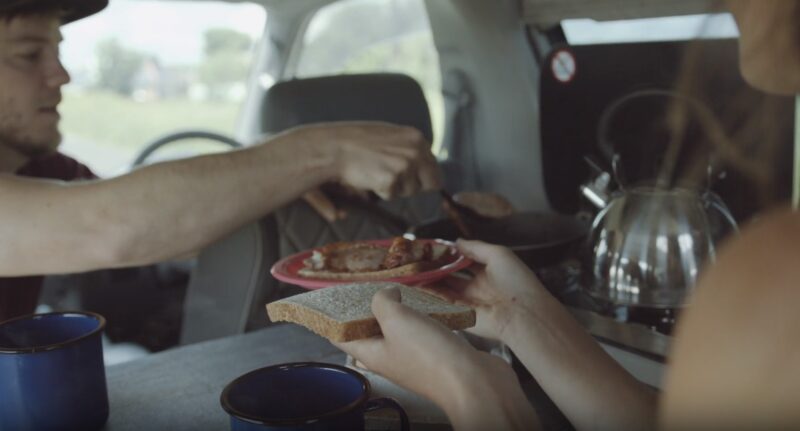
Food and drinks can quietly eat up a significant portion of your road trip budget. With smart planning and a few tricks, you can enjoy delicious meals without the high costs of eating out for every meal.
Plan and Pack Meals
Before you leave, plan your meals. Packing snacks, sandwiches, fruits, and drinks can drastically reduce your food costs. Investing in a cooler can keep perishables fresh, and bringing a portable stove or grill can allow for enjoyable roadside picnics.
This not only saves money but also gives you the flexibility to eat whenever you’re hungry, without the need to find a restaurant.
Choose Accommodations with Kitchen Facilities
Selecting accommodations with a kitchen or kitchenette can be a game-changer. This allows you to cook your own meals, which is significantly cheaper than eating out.
Even simple dishes can be both cost-effective and enjoyable, and it gives you the opportunity to shop at local markets, adding an authentic touch to your road trip experience.
5. Minimize Fuel Costs
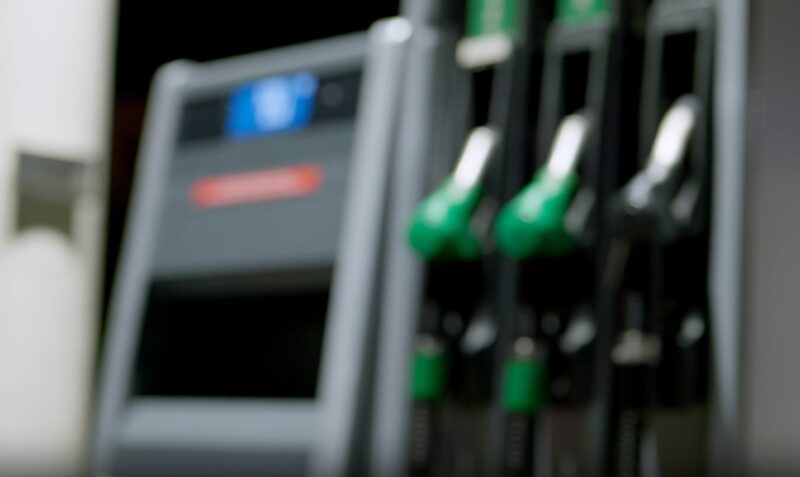
Fuel is an unavoidable expense on any road trip, but there are several ways to minimize its impact on your budget. Efficient driving and smart fuel-buying strategies can make a significant difference in your overall spending.
Drive Efficiently
Driving habits heavily influence fuel consumption. Maintain a steady speed, use cruise control on highways, and avoid aggressive driving behaviors like rapid acceleration and hard braking.
Keeping your vehicle well-maintained, with properly inflated tires and regular engine check-ups, also improves fuel efficiency.
Plan Your Refueling
Plan your refueling stops to avoid getting gas in areas where prices are notoriously high, like near airports or in remote locations. Instead, fill up in larger towns or cities where competition keeps prices lower.
6. Limit Entertainment Expenses

While entertainment is a key part of the road trip experience, it doesn’t have to come with a hefty price tag. There are numerous ways to enjoy yourself without overspending, ensuring that your trip is both fun and financially responsible.
Prioritize Free or Low-Cost Activities
Research free or low-cost attractions along your route. Many destinations offer free walking tours, public museums, parks, and beaches. Take advantage of these opportunities to explore and enjoy without spending much.
Check local event calendars for free concerts, festivals, or other events happening in the areas you’re visiting.
Set a Budget for Paid Attractions
For paid attractions, set a specific budget. Decide in advance which attractions are a must-see and allocate funds accordingly. This helps prevent impulsive spending on less significant activities.
7. Travel Light to Avoid Extra Charges
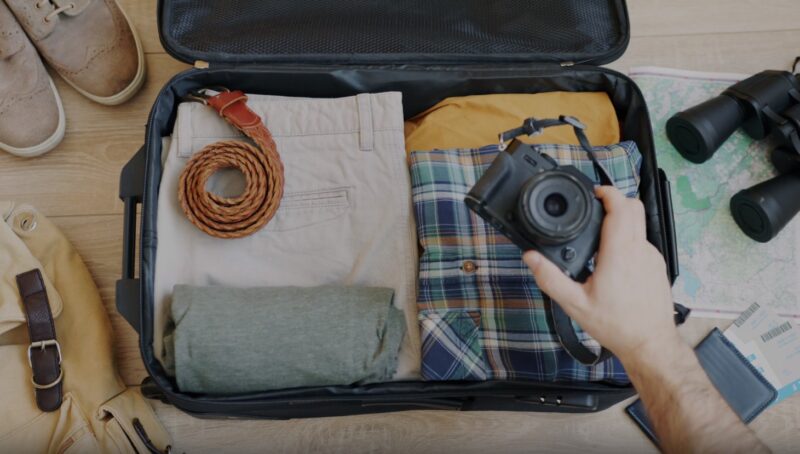
The way you pack for your road trip can have a surprising impact on your expenses. Traveling light not only makes your journey more comfortable but also helps in avoiding additional costs associated with overpacking.
Avoid Extra Fees for Rentals
If you’re renting a vehicle for your road trip, extra luggage can sometimes mean needing a larger, more expensive rental. Keeping your luggage to a minimum can allow you to opt for smaller, more fuel-efficient rentals, further saving on rental and fuel costs.
8. Share Costs with Fellow Travelers

Traveling with companions can be not just fun but also cost-effective. Sharing costs with fellow travelers is a straightforward way to reduce individual expenses significantly. Still, this can be a viable option only when you are planning a trip with friends.
Split Major Expenses
Divide costs like fuel, accommodation, and car rental among the group. This shared approach can dramatically lower the amount each person spends compared to traveling alone. For instance, renting a four-person cabin can often be cheaper per person than a hotel room for a solo traveler.
Use Apps for Easy Cost Splitting
To manage shared expenses smoothly, use apps like Splitwise or Venmo. These apps allow you to track expenses and calculate who owes what, making settling up at the end of the trip hassle-free.
9. Take Advantage of Loyalty Programs and Memberships
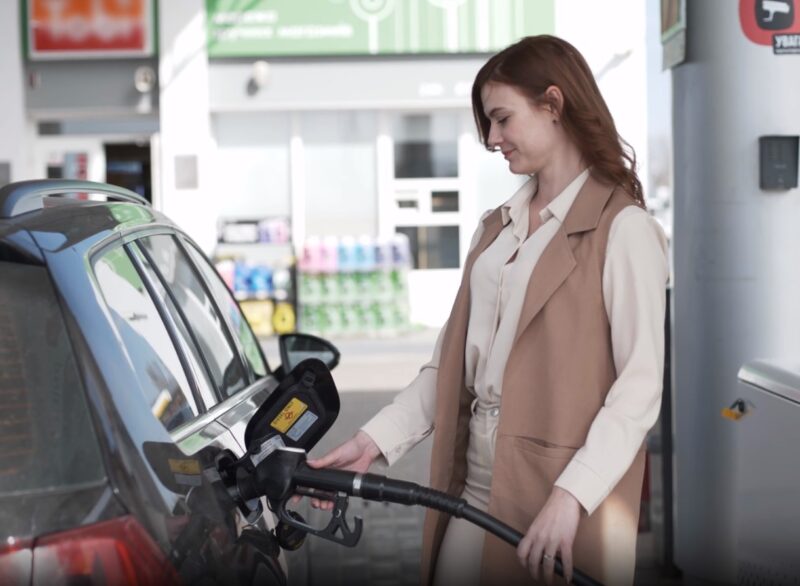
Leveraging loyalty programs and memberships is a savvy way to save money on various aspects of your road trip. From fuel to accommodations, and even attractions, these programs can offer significant discounts and perks.
Join Fuel Rewards Programs
Many gas stations offer loyalty programs that can lead to discounts on fuel. These programs are typically free to join and can offer immediate savings. Also, some credit card companies have partnerships with gas stations, offering cashback or rewards points for fuel purchases.
Utilize Hotel and Accommodation Loyalty Programs
If you frequently stay at a particular hotel chain, their loyalty program can offer room upgrades, free nights, or discounts. Even for less frequent travelers, these programs can provide access to exclusive deals and savings.
10. Maintain Your Vehicle
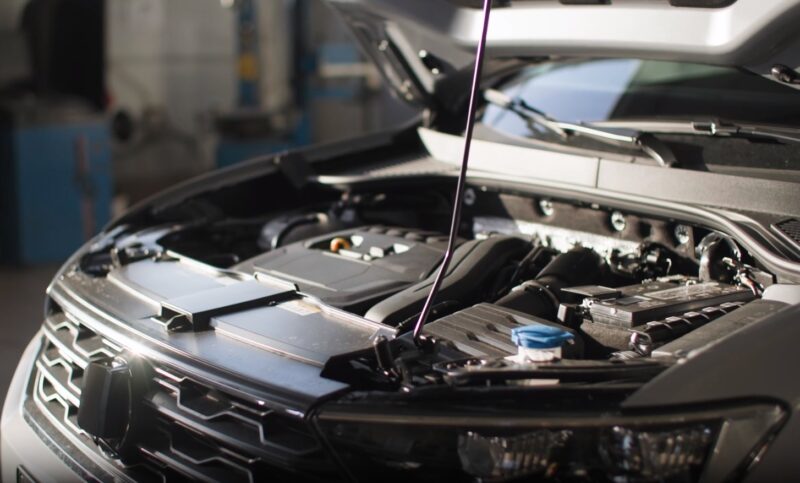
Maintaining your vehicle in top condition is essential for a safe and cost-effective road trip. A well-maintained vehicle runs more efficiently, which can save you money on fuel and prevent costly repairs down the road.
Regular Check-Ups and Maintenance
Before setting off, have your vehicle thoroughly checked by a professional. Ensure that all fluids are topped up, tires are properly inflated, and brakes are in good condition. Regular maintenance, such as oil changes and air filter replacements, can improve fuel efficiency and prevent breakdowns.
Be Prepared for Minor Repairs
Carry basic tools and understand simple repairs like changing a tire or replacing a headlight. This knowledge can save you from expensive roadside assistance or towing charges.
11. Be Flexible with Your Travel Dates

Flexibility in your travel dates can be a powerful tool for saving money on a road trip. By choosing the right time to travel, you can avoid peak prices for gas, accommodations, and attractions.
Travel Off-Peak
Consider traveling during the off-peak season or on weekdays rather than weekends. Hotels and attractions often lower their prices during these times to attract more visitors. Gas prices can also vary depending on the day of the week and time of year, so plan your trip accordingly to take advantage of lower costs.
Monitor Prices and Trends
Keep an eye on price trends for fuel and accommodations. Sometimes, shifting your trip by just a few days can result in significant savings, especially if you’re traveling to popular destinations.
FAQs
How can I travel without debt?
Plan your trip well in advance, save up for it, and stick to a budget that covers all your travel expenses to avoid debt.
How to save $1,000 easily?
Set a clear savings goal, reduce unnecessary expenditures, and consistently put money aside each month to reach the $1,000 target.
How do you travel frugally?
Travel frugally by choosing budget accommodations, eating like a local, and taking advantage of free attractions and public transportation.
How can I save money for a trip in 3 months?
Determine the cost of your trip, divide it by three, and save that amount each month to meet your goal in time.
How can I save for a trip in 6 months?
Break down your trip’s total cost by six, make a monthly savings plan, and cut back on non-essential expenses to save for your trip.
Summary
A budget-friendly road trip is well within reach with the right strategies. By focusing on key areas such as route planning, accommodation, food, and entertainment, you can dramatically reduce costs while still enjoying the essence of your journey.
Remember, the art of saving money on a road trip doesn’t mean compromising on fun; it’s about making smart choices that enhance your experience. So, embrace these tips, hit the road with confidence, and make your next road trip both memorable and affordable.
